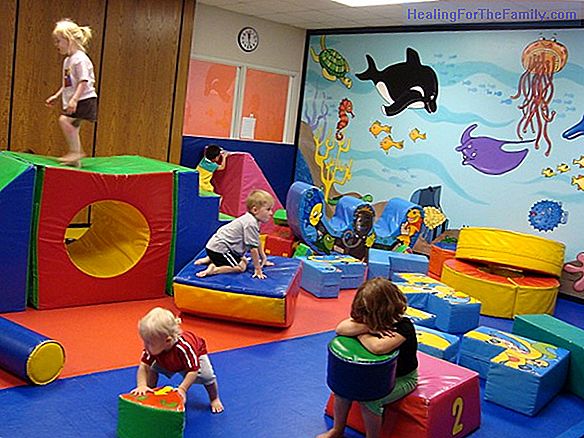Why children should also play alone
Individual or solo play, unmanaged play, free play without adult intervention (mom, dad or other educators) offers great benefits in cognitive development of our children children , increases their independence and autonomy, encourages their fantasy and allows them to make their own decisions withou
Individual or solo play, unmanaged play, free play without adult intervention (mom, dad or other educators) offers great benefits in cognitive development of our children children, increases their independence and autonomy, encourages their fantasy and allows them to make their own decisions without fear of being wrong.
It is true that many children do not want to play alone, perhaps because they have not had the opportunity to learn to do so. Children who at all times want us to be an active part of their games and activities. Children who complain at home, in the park or wherever they are playing. In a way, this is a sign that they need us, a way to get our attention and, of course, to make sure that they are still the most important thing in our lives. But it is important that we allow them to play solo moments and that our little ones learn to play alone from time to time.
Advantages for the child to play alone

It is also true that playing together, playing with our children, we share more than a game: we teach to share, we help to develop their language or their abilities not only physical, but also emotional and social, In short, we help them grow. I have always liked playing with my children, intervening in their games and helping them to move forward, however I have always tried to leave a space and a time for my children to learn to play alone. The advantages of the game alone are multiple
, but here I want to highlight those that I consider fundamental and those that differentiate it from the shared game.The game alone allows children to:
-
Be more independent and autonomous by exploring the world around them assimilating different ways of learning and relating to their things and environment. -
Making decisions for themselves , making mistakes and finding a way to do things that have not gone well without the constant intervention of the adult who solves the problems or the voice that says' no love, so That's wrong'.-
Develop the non-directed symbolic game . Playing alone, our children can do and say things that perhaps in front of an adult would not do because they are prohibited or because they feel a little embarrassed, such as saying a bad word or putting interesting faces.-
Encourage fantasy and creativity , the child who plays only enlarges his inner world by creating characters and scenarios around him that do not exist.Despite all these advantages we must bear in mind that
it is not about our children always playing alone , just the opposite. A child needs to share the game with other children and with other adults to learn to relate, to learn the rules of coexistence, to develop their language and social skills.The shared game and the solitary game complement each other, neither should replace the other because both are necessary for the correct cognitive and emotional development of our children.












